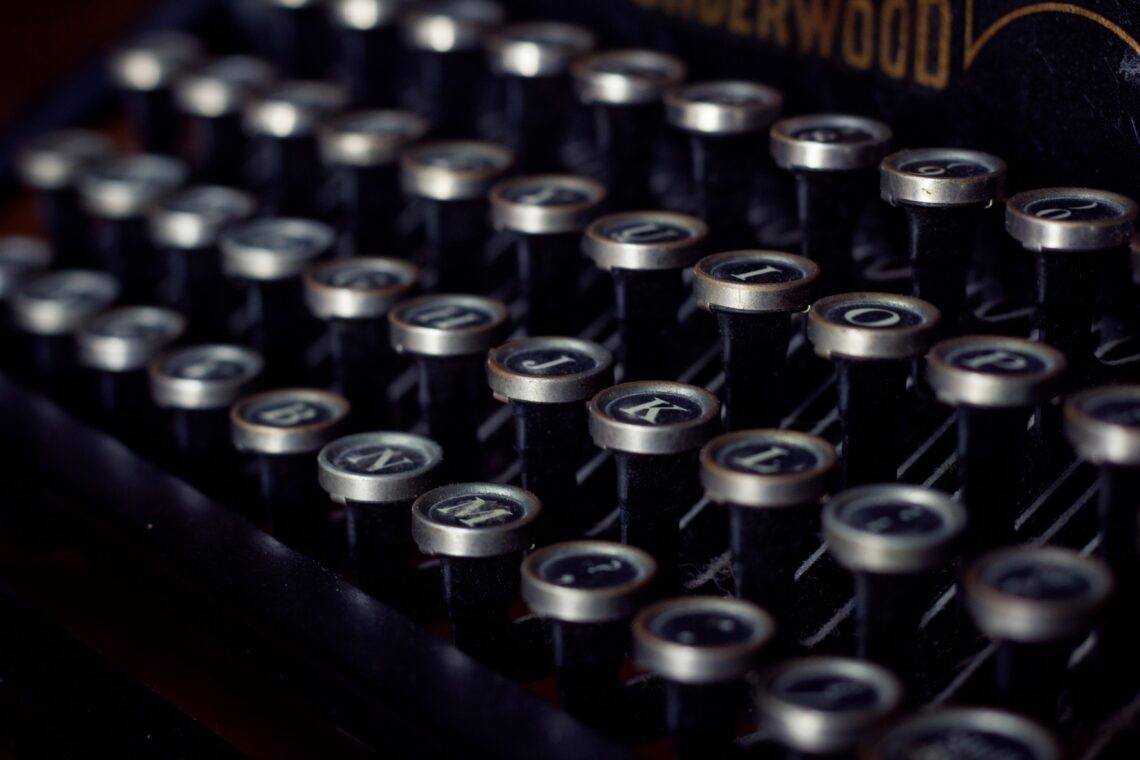
“My poetry is an attempt to put a vertical beam in the horizontality of modern culture.”
Edward Clarke is a poet who thinks he can add to the psalms and connect with the cherubim. And he’s delightfully sane! Adamah’s Editorial Director Joseph Evans interviewed him.
Can you tell us a bit about yourself: what you do, your interests …
Of course. I live and work in Oxford and, basically, my interests are my work and family. That could sound a bit limited, but in fact it’s not at all the case. Indeed, what I do for work, other people do in the evenings and at weekends, in the sense that a lot of my work involves reading literature and looking at art. Because I teach English literature, creative writing, and art history for a living. I tutor at the Department for Continuing Education, Oxford University, and for different colleges, teaching undergraduates, often visiting American undergraduates, and mature students.
I also write poetry and have various collections published, together with some critical works in prose.
Every morning I wake at 4 or 5am to spend two or three hours writing poetry. I’m pretty much compelled to do it.
As Hippocrates and then Chaucer said, “The life’s so short, the craft’s so long to learn”, and I know, with Blake, without unceasing practice you’re lost. Then I take my children to school and so another day begins. I do like hiking in the summer in the Alps and I like to walk around Oxford. I make sure I spend a couple of hours each day striding out or sauntering, to or from work, along the river, through meadows. I grasp these opportunities because with children you can’t waste your time.
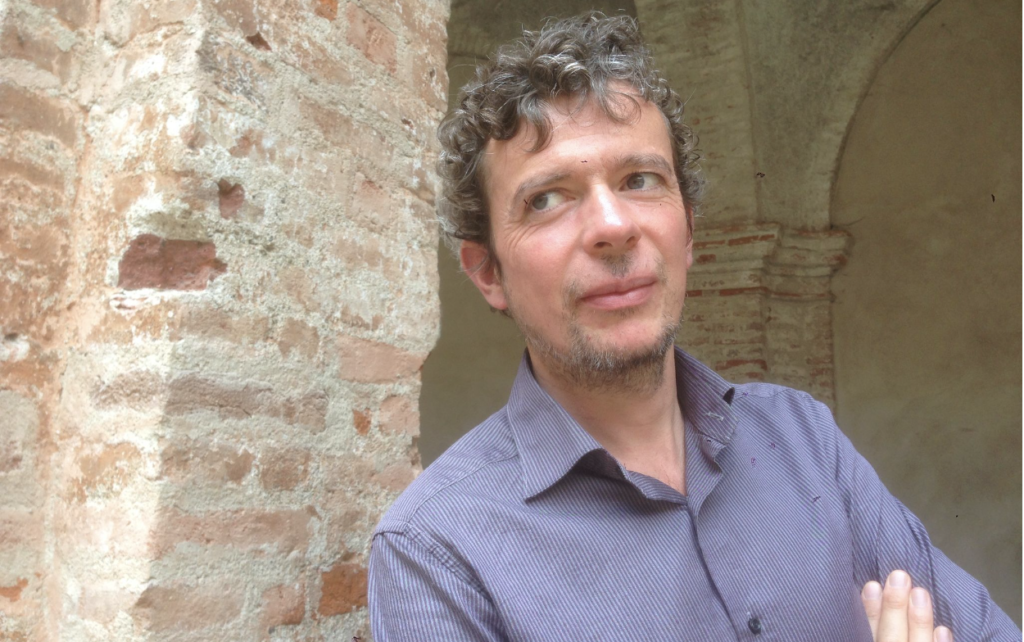
My wife, Francesca, is Italian and teaches Italian language and literature at Oxford University. Now she’s writing a children’s book, but she’s also a poet at heart. She’s my critical muse. I write her a poem and it comes back to me with notes. I can always trust her judgement. I give her a love poem with trepidation because she might well return it with queries. I suppose the old interchange between Italian and English literature is intensified in our house.
You’ve written two collections of poetry, one of which is your own commentary on or response to the psalms and another enters into relationship with the cherubim, one of the highest orders of angels. Isn’t that pretty ambitious? Commenting on the very words God has given us to pray, his own words as it were, and speaking with one of the highest forms of angels … That’s daring, to say the least.
I was thinking about the word ‘ambitious’, which comes from the Roman word for walking around and is linked to canvassing for votes. So I’m not ambitious in that sense. But I do want to go a little out of my depth, where my feet can’t touch the bottom. I’m not ambitious for fame, but I do hope my poetry lasts.
At first I was rather scared of the project of writing the psalms, like Jonah I ran away from the task. But I came back to it. With the cherubim I felt trepidation: they are after all the guards of Eden and the living chariot of God in Ezekiel and the psalms as they assail out of heaven. They are like sphinxes: each one is a tetramorph, a lion with the head of a human and eagle’s wings, and hooves or wheels for feet. They are pretty terrifying creatures.
Writing on Michelangelo and Cézanne I realised that all great art in a sense is cherubic, you’re attempting to fly over their reach, it’s overreaching. On the publication of the Cherubims poems the roof was ripped off my house, which I think was a sign of them saying “we’re here, watch out”.
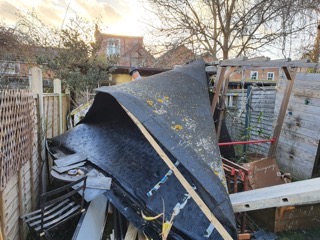
I was being warned by those terrifying angelic figures to know my place.
And there is that tension in all art between the human artist and God. We’re made in God’s image, and partly that means we can create too. The angels are above us in the hierarchy, though we can travel up and down it, especially in our art. And in that case I take those strange guardians tremendously seriously. When Cézanne was painting Mount St Victoire he felt there were living creatures striding up to him across the plains. He’d reached the point in his art where he was at the threshold of the invisible.
I see human art in terms of the completion of the work of creation and as an obligation. All organic things around us are in their purest form in a state of music. They want to be completed in art.
At a time when much of modern poetry seems to focus on the mundane – it seems to have lost its ambition for the transcendent – you demand the right to fly high. Can poetry still do that? Does faith foster or hinder poetry?
I think we live in a great time for poetry. The world seems something of a dark place at the moment and poetry can give a certain light, a bit like the beginning of creation, the spirit of God moving over the chaos.
As Plato and Yeats might say, we live in a period of the winding down of one phase of history, just as another is somehow being wound back up.
I write about mundane things, like my family life, but with a sense of transcendence. My poetry is an attempt to put a vertical beam in the horizontality of modern culture. There is a defiance to it. Just as in the Bible there’s a literal and a spiritual sense, I feel so in my life. And my poetry aims to do that: to draw out the spiritual sense from the literal.
As in a religious rite, it allows me to step into the threshold of the invisible, that sort of wild space, which is as much in one’s heart as it might be out of town.
In various Biblical episodes there are barren women who conceive children miraculously as the beginning of a new phase or situation.
Poetry is something like that barrenness: it devastates you. You achieve the state of the barren womb so that something miraculous happens.
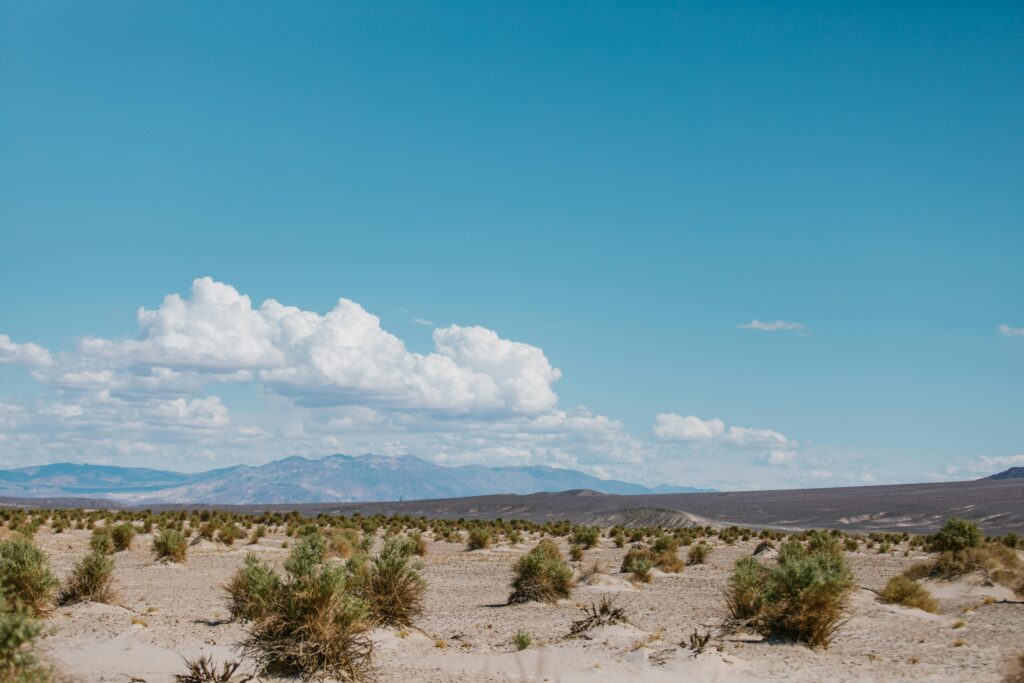
People see poetry as self-expression. But for me it’s all about giving myself impediments to self-expression. Yeats talked about difficulty being a plough, that gets under the surface of your consciousness. The impediments help to break my ego. Just trying to handle metrical patterns or deal with rhyme makes you work a bit harder and think more about what you are going to write.
And you reach a point when you are broken open and emptied out, and that’s when you are most filled up. That’s when I find the most miraculous poetry gets written. You’re ‘catching it’. The graft opens you to inspiration.
When I was part-way into writing my book of psalms, after I had received initial interest from the publishers, they passed on it. At the time this was, naturally, a great disappointment. But at that point, when I was no longer writing for anyone or for any particular purpose, the poetry became more appealing to me, more valid. Much later they decided to publish the book, but by then the poems were thankfully written.
What comes across loud and clear in your poetry is a playful spirit and also a great joy in your family life, a great love for your wife and children. Again, much of modern poetry seems to be written against a backdrop of suffering and brokenness. Would you agree with that? Can a poet be a happy family person? Does contentment encourage creativity? It seems to in your case. Does a poet need to be unhappy? Don’t you need to suffer to be creative? And what can children teach us about poetry?
Our family is a happy family, but my poetry also comes out of experiences of loss or frustrations, even mundane grievances, like someone ripping me off in a job, or the loss of a loved one.
When I was writing my collection of poems on the psalms, I knew that these ancient texts are famous for their range of emotions, from out and out praise to despair, and I wondered how I could match that. But I came to understand that all I needed to do was write for two years and I’d live out that range.
I do feel that poetry should include praise. The psalms taught me to embrace that.
There is in our society a culture of feeling sorry for oneself.
Since the mid-19th century there seems to be a sense that this is where poetry comes from, that poetry needs to arise from existential misery. But I see this despair can become an affectation. People are embarrassed to be happy, to praise God and to pray, in their poetry. Although of course psalm 88 is as despairing as it gets.
And definitely, one learns so much from children. I don’t find a lot of inspiration in my own childhood, but I do find it in my children and their naturally poetic observations. In the Covid lockdown, spending so much time with them was an intense blessing. One learns not to overlook things, to give more importance to them than to administrative work. Children are no-nonsense, they don’t romanticise.
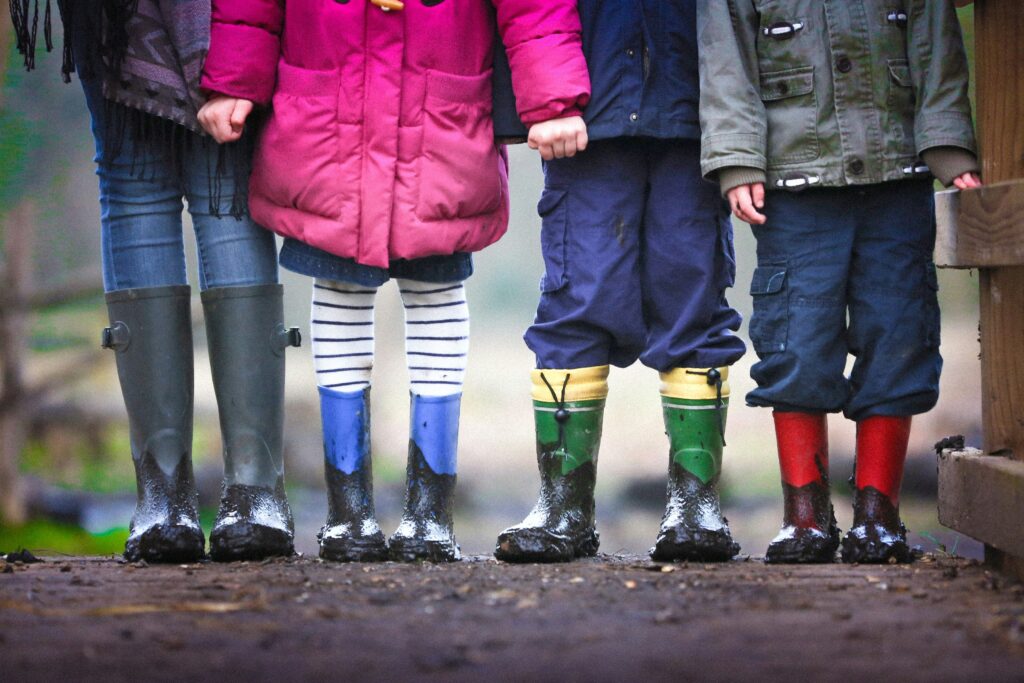
How is that poetical? Isn’t that prosaic?
They see things as they are, which is where you want to be as a poet.
What do you think about Chesterton’s idea of the ethics of fairyland, as if children have a better grasp of reality than adults?
The thing about fairyland is that there’s a lot of ruthlessness in it. Children take you to a really beautiful space but there’s a lot of grind in it too. They make you do all sorts of things you don’t want to do. But you need that. They need you to be real and straightforward with them. But they also have a profound capacity for belief. Thankfully the tooth fairy and topolino dei denti still visit our house.
It took me about two years to write the poems in Cherubims and it was just a great experience of getting to know my children better.
Yes, I liked that a lot. You’re writing about those great angelic guardians but at other moments, in the very same poems, your own tiny little boys are depicted as cherubim, with all their fragility.
The editor of my book of psalms encouraged me to write more about my children, having enjoyed a few poems about them. This was a chance for me to enjoy them, to watch them grow more closely. It’s easy, in a small house with four people, to be caught up in the grind of it all.
But there’s something angelic about children, they seem to have a purer spirit and to be more spiritual.
As self-centred, capricious and demanding as they can also be at times, yes, they do come “trailing clouds of glory”, as Wordsworth says.
You have a work entitled The Vagabond Spirit of Poetry. Could you explain this work a bit more and what you mean by this title. Is poetry still relevant in our busy, industrialised world? Isn’t poetry ever more for an intellectual elite? Your own poetry isn’t always that easy to understand.
The Vagabond Spirit of Poetry is a work designed for a more general audience. The idea is that poetry is like a wandering spirit which surfaces in different poets at different moments in history. The book encourages people to slow down and enjoy poetry to appreciate its quickening power. Paradoxically by slowing down you are quickened as a result. Whereas I think the opposite happens in our culture. We are always rushing around and as a result we lose creativity.
I was trying to argue that poetry has been very marginalised in our culture and become more academic. My granny knew a lot of poetry by heart. But today people are often scared of it. I think we underestimate its value.
The poet Edwin Muir talks of the lopsided development of our culture. Our technological reason has developed in an extraordinary way, but in terms of imagination, which has a lot to do with faith, we might even have regressed. Reason almost wants to push poetry away.
But if imagination can be returned to its sovereign place in our heart and culture, it can put reason to work in a way that is useful for us, so that we can have a future.
You took for granted that imagination has a lot to do with faith, what do you mean by that?
I see imagination as feeling intellect, intuitive discourse, or in terms of Coleridge’s definition of it as a repetition in the finite mind of the infinite ‘I am’. In some ways loving God is an imaginative act. My poetry has everything to do with renewing that kind of love. How can we love one another without that touchstone?
You’ve written a scholarly work about two great poets, W.B. Yeats and Wallace Stevens, both of whom were masters of language and style but also very anti-faith or certainly organised religion. Did you find that difficult to do as a devout Catholic? How can Christians enter into dialogue with people of other beliefs or none? Is it still possible? Is it worth the effort?
First of all I wouldn’t say that Stevens is anti-faith. I think he saw faith as being necessary for human existence. Certainly, his later poetry shows a much greater openness to God. It’s also quite possible, though disputed, that he became a Catholic on his deathbed.
I would also say that, weirdly, Yeats is quite a Christian poet. His poetry aims at a sort of synthesising which we saw in the Renaissance, the dream of artists like Botticelli to marry the pagan and the Christian. I must also say that I was not a Catholic when I wrote my book on those poets and that they were part of my journey towards faith. And it’s absolutely worth the effort to enter into dialogue with non-believers. I would say that my whole life is dialogue, through my teaching.
I think of the image of the wheel and its spokes: I want to take one spoke, for me Catholicism, to the centre of the wheel. It takes me to the hub.
What is the hub?
The hub is the place in my heart, the wilderness, the place where the poor in spirit are, the place of prayer, the place to which Mass takes me each Sunday, where I am emptied out of myself enough to receive the body of Christ.
Edward Clarke is the author of three works of poetry: A Book of Psalms (Paraclete Press, 2020); Cherubims (Kelsay Books, 2023); and The Voice inside Our Home (SLG Press, 2022). He has also written two books of criticism, The Later Affluence of W. B. Yeats and Wallace Stevens (Palgrave Macmillan, 2012) and The Vagabond Spirit of Poetry (Iff Books, 2014), and a book about art history, The Secret Mind of Art (Angelico Press, 2023).
Like what you’ve read? Consider supporting the work of Adamah by making a donation and help us keep exploring life’s big (and not so big) issues!
Edward Clarke
Edward Clarke lives in Oxford with his wife and children. His last collection of poems, Cherubims, was published by Kelsay Books at the end of 2022. Previous collections of his poetry include The Voice inside Our Home (SLG Press, 2022) and A Book of Psalms (Paraclete Press, 2020). His documentary, ‘Clarke’s Psalter,’ was broadcast on BBC Radio 4 in 2018. He is also the author of three books of criticism, The Later Affluence of W. B. Yeats and Wallace Stevens (Palgrave Macmillan, 2012), The Vagabond Spirit of Poetry (Iff Books, 2014), and The Secret Mind of Art (Angelico Press, 2023). https://edwardjamesclarke.wordpress.com/

